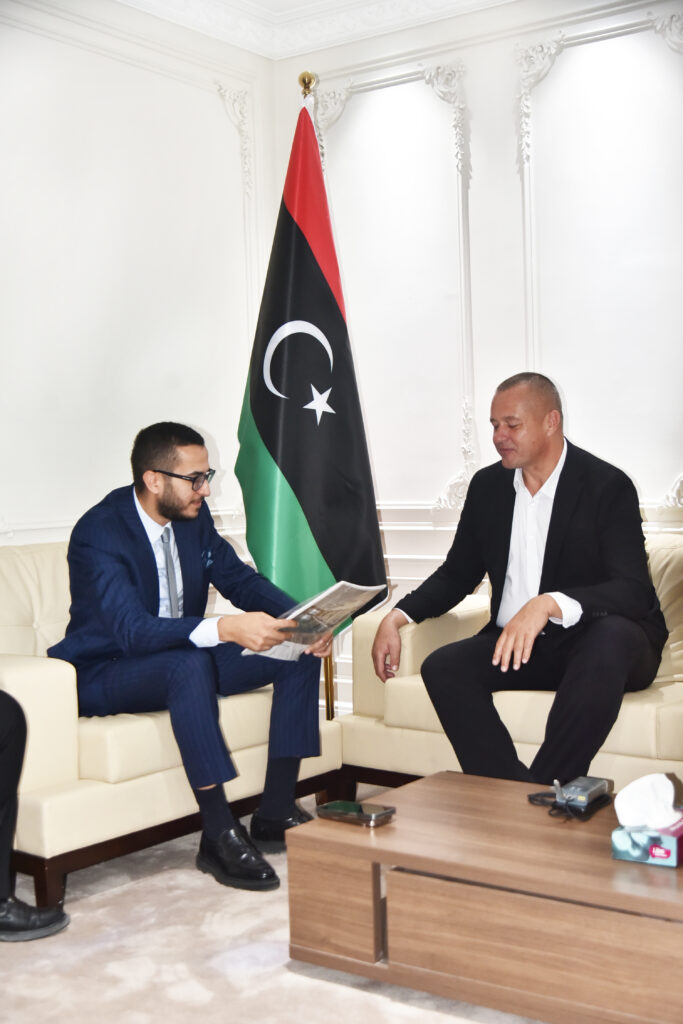Optimism, cooperation, and clean energy at the heart of Libya’s development journey
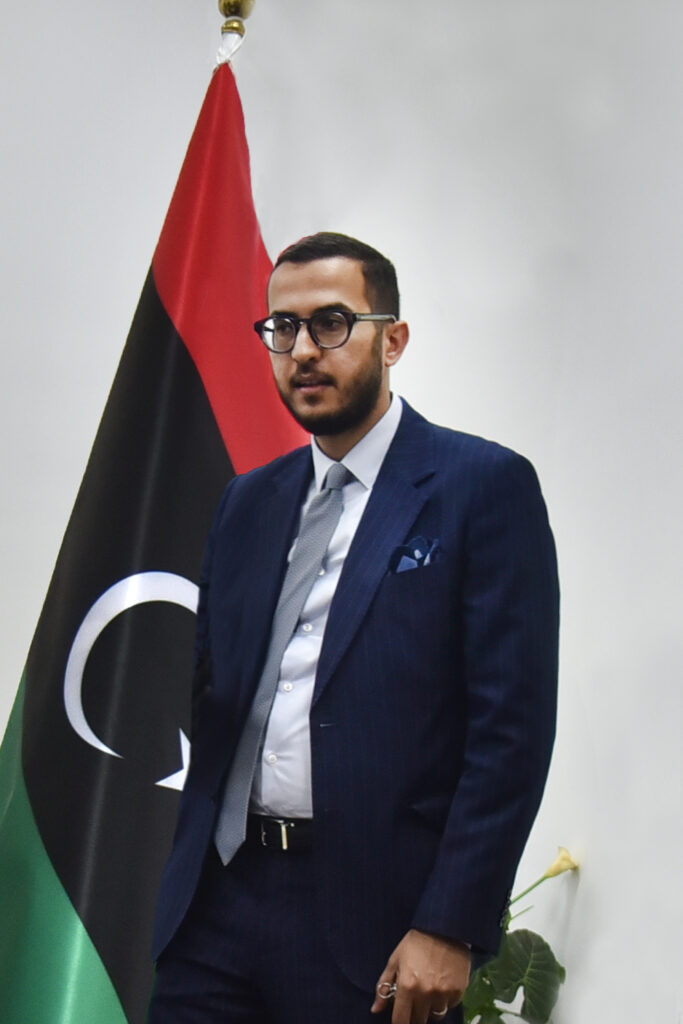 Interview by Robert Čoban
Interview by Robert Čoban
In this special InFocus Libya edition of Diplomacy & Commerce magazine from Serbia, we have the privilege of speaking with Mohamed Hammouda, Spokesman of the Government of National Unity of Libya. As Libya continues its journey toward unity, progress, and sustainable development, Mr. Hammouda sheds light on the country’s strategic plans, its vision for international partnerships, and the potential to revitalise the historically strong ties between Libya and Serbia. This conversation highlights opportunities for flourishing cooperation in energy, education, healthcare, and cultural exchange, marking a new chapter in the relationship between these two nations.
How do you see Libya’s future? Is a united country within the pre-war borders possible in the near future?
First of all, thank you for coming here: we would like to see more Serbs and more people coming to see Libya and the development that is happening. About the future of Libya- we can only be positive – we have learned that if you are optimistic, you will achieve the attitude first, and with hard work, the dream will come true. Since 2021, we have witnessed this progress, and regarding Libyan unity – Libyan people have always been united, and Libyan institutions at middle and low levels are all united. We still have this political division, and hopefully, we will overcome it.
Libyan people have always been united. What divides us is the power struggle, not societal or regional differences
I have heard that the people are very friendly. Is that true when they hear the accent of the other part of Libya?
As I said, the people have always been united – what divides Libya is the power struggle. But if we look at Libyan society, it is one people – visiting each other daily. And we saw the catastrophic floods in Derna, how all the Libyans immediately jumped to help, offering money, goods, anything. We feel each other and never see Libya as „East“ and „West“. It is very misleading: the authorities here in Libya are from everywhere: East, West, South, every town. The same happens in Benghazi – it is never a matter of East, West, or social divisions, but rather political differences.
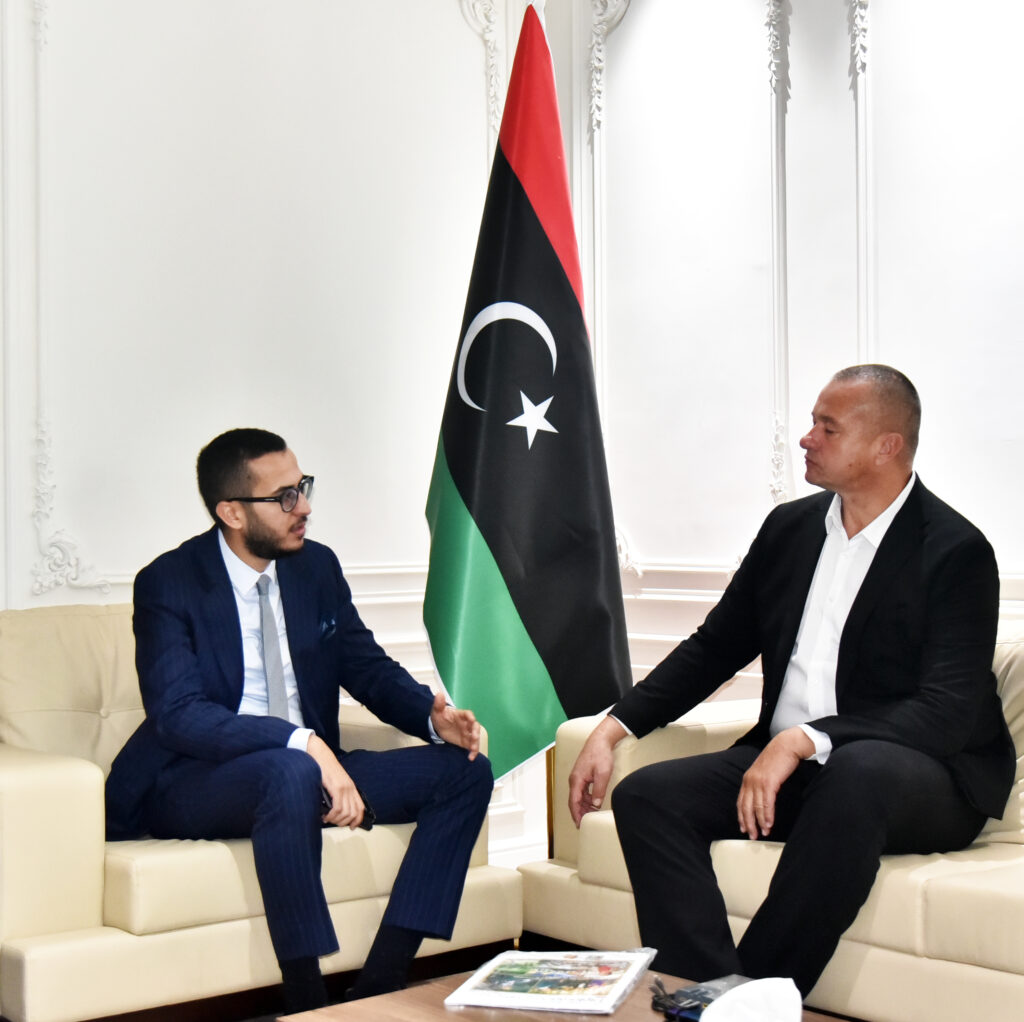 Number One topic in the last year is the crisis in Gaza and Lebanon. What is your official position on that?
Number One topic in the last year is the crisis in Gaza and Lebanon. What is your official position on that?
Libya has always had the same position – we are for the right of the independence of nations, for free Palestine. We have always supported the two-state solution, with Jerusalem as the capital of Palestine. What we are witnessing today is a shame in this day and age: to see the children and people dying daily in front of all the people, the genocide is happening.
We aim to use solar power for ourselves and export gas to Europe, contributing to greener energy solutions
Have you also condemned the Hamas attack on the 7th of October and taken hostages?
During that event, there was no official statement from the Libyan government.
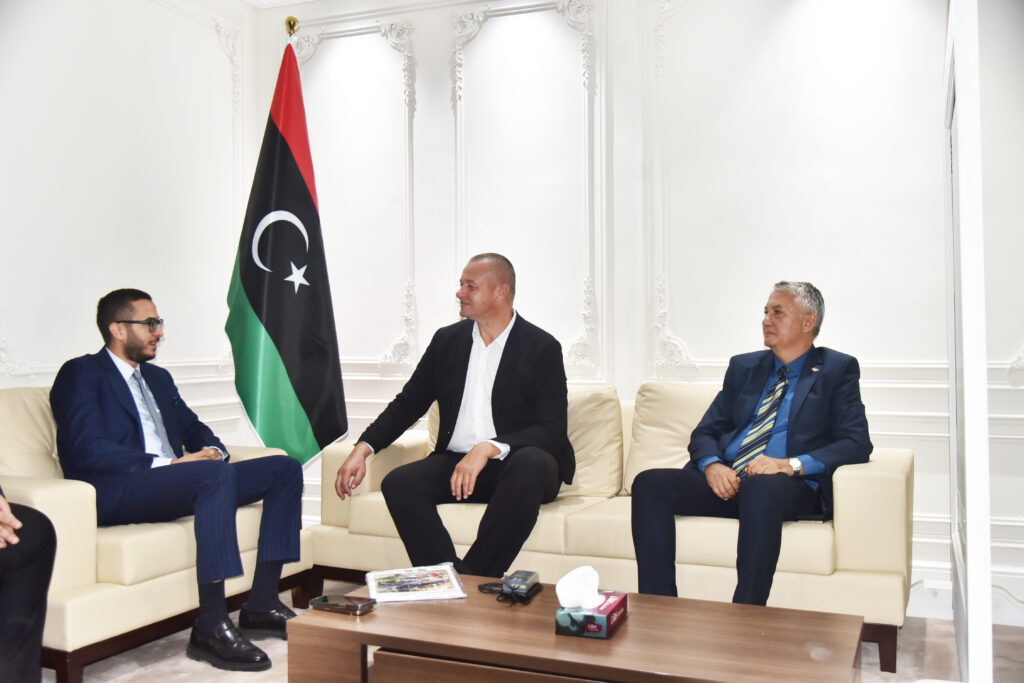 Last week, your government confirmed its interest in joining BRICS and the prospects of cooperation with the member states. How would it affect your relations with the USA and the EU?
Last week, your government confirmed its interest in joining BRICS and the prospects of cooperation with the member states. How would it affect your relations with the USA and the EU?
Libya is an independent country. What we look at is our interest and what benefits the Libyan people. We maintain good relations with all nations. Still, all these international organisations are beneficial because the world should be closer to each other, more united, and have more solidarity among people. COVID-19 taught us how apart our world is and how we are not sufficiently cooperative and interconnected enough. We must be all that to overcome major global threats like climate change. What happened in Derna is because of climate change, and what happened in Spain is because of that. The world needs to be more united, and BRICS is one of the ways to do that. It is a very promising coalition, and Libya is interested but has still not formally applied.
Recently, your government supported all efforts to achieve stability and security to combat terrorism and extremism in Africa. In your opinion, what is Africa’s biggest problem today?
I cannot speak from the point of view of all countries, but I can talk for Libya. Libya has an excellent position, which is a blessing for us, but it also puts us in a position between the South and North worlds. All the people from Africa looking for a better life and future and thinking that Europe is a go-to place have to pass through Libya. Not all of them, those who stay in Libya and work here, are much more numerous than those trying to reach Europe. I don’t have the official number of people living here, but it is significant, and we are facing it alone. We need joint efforts between Libya, Europe, and the Sahel countries to find a solution. Developing job opportunities in the source countries is how to keep these people in their countries and provide them with a better life. But leaving people to die in the sea is inhumane, something that we do not accept. This is our solution, and PM Dbeibeh has had conferences and meetings in Italy and Sahel countries to find a more comprehensive solution. Libya is rich in energy – we have over 3000 hours of sun and gas and are the 5th country by oil reserves. Libya has much potential in energy, especially clean energy. And Europe requires that energy, especially now after the war in Ukraine. Libyan energy is very suitable for its position, cost, quality, and infrastructure – the Green Stream to Italy. The challenge is how to invest in that energy. We increased our oil production since we think we can spare more for development once we increase the oil production. We have increased our gas production and use our infrastructure to pump that gas to Europe. And instead of using our gas as energy for us, we plan to use solar power for ourselves and export that gas, thus contributing to greener energy. The biggest challenge is that clean energy needs investments. We want international companies to come to Libya and invest; hence, we will have the energy to give to others. Now, we have an agreement for clean energy with Malta and Italy and a pilot project with Total Energy. We also have the Clean Energy Authority, which has a clear strategy. We have assigned specific plots to attract foreign investors. We have made very concrete steps.
Libya is evolving and needs cooperation. Serbia is one country that is always welcome to play a part in our growth
About Africa, do you feel any danger about what is happening in Central Africa, on your southern borders, like terrorism?
Libya has suffered from terrorism, from ISIS, for a couple of years. We have shown to our partners that terrorism is not accepted in Libya. We have lost many lives to make all of our cities free from ISIS. Thankfully, we have succeeded, but the threat is always here. And what is happening in the neighbourhood, like Sudan, is dangerous and challenging.
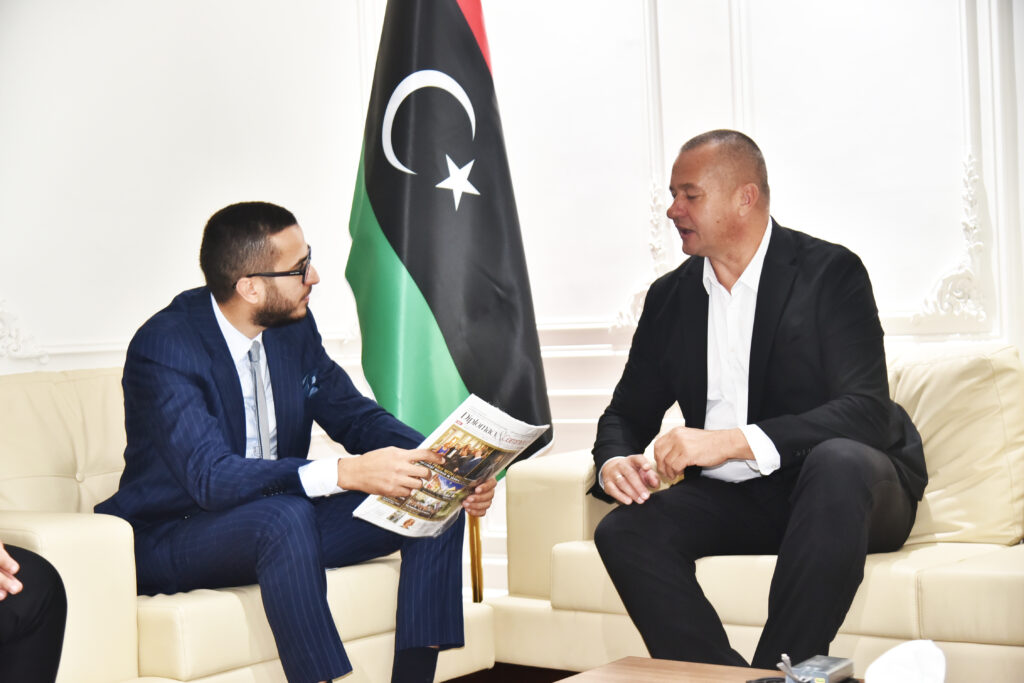 How do you see the future of Libya-Serbia relations and bilateral cooperation? How can we bring back Tito’s era’s golden age and glory?
How do you see the future of Libya-Serbia relations and bilateral cooperation? How can we bring back Tito’s era’s golden age and glory?
Libyans and Serbians have a lot in common. Because of education, many Libyans have been to Serbia to study. There was security cooperation as well. Libya is now evolving and in need of lots of cooperation. Serbia is one country that is always welcome to play a part in it. During Tito’s and Gaddafi’s era, we were part of the Non-Aligned Movement and closely cooperated. It all still applies to the freedom and independence of nations and the right to self-determination. We haven’t changed.
In which area do you see the most opportunities?
Education, health. In this period, Libya is going through privatisation, and the private sector is taking over a large chunk of the economy. Also, the government has started with cooperation in health – we need pharmaceutical companies and skilled medical workers – to have a better government in the health sector. We have begun the Revive & Development project for investments since we had a pause from 2011 to 2021. We plan to rebuild schools, hospitals, infrastructure, roads. It is a huge programme. In all these areas, we are open to anyone who can guarantee reasonable prices and quality, and companies from Serbia are invited. Libya is frequently presented in a bad light, and the reality is much better – we want to spread the optimistic message and show the new, true Libya.
We prefer cultural tourism over mass tourism to preserve our heritage and share the true spirit of Libya with the world
What about tourism? You have 2000km of the coast. Can we expect to see a new Tunisia or a new Egypt?
We are 7 million people, a small population. We are not into mass tourism since we want to preserve our culture. So, we are more interested in cultural tourism in the future.
